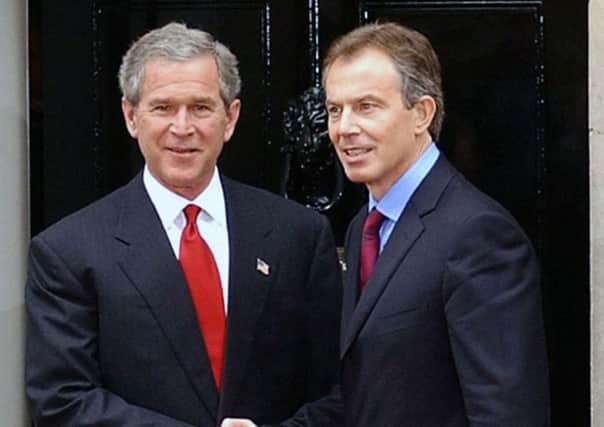What Chilcot really tells us about Bush and Blair - new report by Sheffield academic


Professor Piers Robinson said Chilcot’s criticism today that Tony Blair had not been “straight with the nation” about his decisions in the run-up to the Iraq War, vindicated the early assessment of him by the vilified former BBC reporter Andrew Gilligan.
Prof Robinson, who lectures in politics, society and political journalism at Sheffield University, said Sir John had “pulled his punches” in hedging his criticism of Mr Blair, but had performed a greater service by exposing details of the way the UK and US plotted a strategy of regime change in the middle east.
Advertisement
Hide AdAdvertisement
Hide AdHe said it demonstrated that the September 11 attack on New York’s World Trade Centre was exploited to destabilise countries unconnected with Islamic fundamentalist terrorism.
In a new analysis of the Chilcot Report, published in the International Journal of Contemporary Iraqi Studies, Prof Robinson says that neither Mr Blair nor former president George W Bush ever sought a peaceful solution, despite their propaganda rhetoric.
Instead, the two governments conspired to launch a wide-ranging and covert “war on terror” which discussed “hitting” Iraq, Syria and Iran.
The strategy led directly to the conflicts that characterised the second half of the decade, Prof Robinson said.
Advertisement
Hide AdAdvertisement
Hide Ad“If you take into account the fact that the wars in Iraq and Afghanistan are carrying on to this day, you’re looking at millions of people killed, and the biggest refugee crisis in Europe since the Second World War,” he told The Yorkshire Post.
“The consequences have been catastrophic. And they are not the result of mistakes - this was a deliberate strategy.
“Syria and Libya were fairly stable countries with healthcare, education and a remarkable degree of development, given their governments. And these countries are now pretty much destroyed.”
He added: “When this gets looked back on, it will be seen as a very negative, dark period for America and the west.
Advertisement
Hide AdAdvertisement
Hide Ad“The unfortunate reality is that the conflicts have not achieved anything in terms of bringing democracy to Afghanistan or Iraq.”
Prof Robinson said that although interest in the UK had focused on the Chilcot Report’s assessment of whether the Blair government had exaggerated claims that the Iraqi dictator Saddam Hussein had weapons of mass destruction which he could deploy within 45 minutes, American readers were mostly incredulous that Chilcot had published the details of the Blair-Bush strategy dialogue.
He said: “The ‘45 minutes’ document was used to close down dissent from defence intelligence staff. What happened was that someone told them, ‘We’ve got this great piece of intelligence - you’re not allowed to see it but it confirms everything we are saying’.”
Prof Robinson said it was unlikely the intelligence services would now change the way in which they operated, “other than to be more careful in future”.
Advertisement
Hide AdAdvertisement
Hide AdHe said MI6 had seen Mr Blair’s press secretary Alastair Campbell as “a loose cannon”. It was Mr Campbell who, in what Prof Robinson called a “diversionary tactic”, led a furious government attack on the BBC after Mr Gilligan claimed on air that Mr Blair had deliberately misled parliament with his claims about Iraq weapons capability. It led to the resignations of the corporation’s director general, Greg Dyke, and its chairman, Gavyn Davies.
Prof Robinson said: “I always suspected there was more to it than protecting the integrity of the government. It’s really been about America trying to use its military dominance to hold on to power into the 21st century.”
• THE NEW analysis of Sir John Chilcot’s report by Sheffield University is highly critical of his failure to consider “the honesty and probity of officials”.
Prof Piers Robinson says that “despite all of the evidence that officials were less than forthcoming” over seeking a peaceful settlement through the United Nations, Chilcot did not engage with the question of possible deception.
Advertisement
Hide AdAdvertisement
Hide AdHe says Chilcot failed to clarify who was responsible for deciding to use the claims about Iraq’s weapons capability and “critically, the extent to which Blair himself was involved”.
He adds: “If Blair or his advisors played any role in the decision ... , then the dossier would no longer be purely the work the intelligence services and there would have been clear and demonstrable political contamination.”